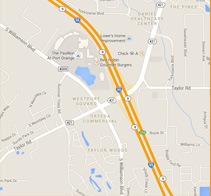News Archives
More Rain Means More Mosquitoes for Volusia County.
Written by Kristen Schmutz
Belden Communications News
With the rainy season upon us here in Volusia County, Volusia County Mosquito Control, an integrated pest management program that includes an extensive surveillance program, wants to remind residents that standing water is an ideal breeding ground for Mosquitoes.
According to a release from the county, floodwater mosquitoes result from eggs laid in the soil that have dried and are awaiting a rain event to hatch into mosquito larvae.
“Surveillance data shows increasing populations of mosquitoes are classified as floodwater,” said Volusia County Mosquito Control Director Suzanne Bartlett. Mosquito populations are tracked by species and location using mosquito traps, while sentinel chickens are used to monitor the activity of mosquito-transmitted viruses. The data collected is then used to develop a response plan specific to the area.
Larvicide operations are conducted routinely by utilizing helicopters and ground field inspectors to target mosquito larvae in the water before they emerge into biting adult mosquitoes.
When adult mosquito populations increase so do the risks of mosquito-borne illnesses. Adulticide operations are planned to target flying mosquitoes. These operations are done by truck, helicopter, or fixed-wing aircraft after sunset or before sunrise when pollinators such as bees are not active. An online web map, available at Volusia.org/mosquito, shows planned and recently sprayed areas. This map is updated daily.
“Mosquito Control staff is working day and night to combat these pesky mosquitoes. Based upon recent widespread rainfall affecting the county, we are planning aerial adulticide operations,” Bartlett said. “We will have increased low flying helicopter operations over the next few weeks, as weather permits.”
Mosquito control urges residents to do their part to help reduce the risk of mosquitoes. Residents can walk their properties and remove any standing water in containers such as kiddie pools, birdbaths, potted plants, or any other yard containers. These containers should be emptied of any standing water at least once a week, to break the mosquito life cycle.
Areas where water cannot be removed may be a good spot for mosquitofish (Gambusia), which are provided at no cost to the public.
Another key step is to protect yourself and your family by using an EPA approved repellent. For more suggestions, visit the Centers for Disease Control and Prevention website at
https://www.cdc.gov/zika/prevention/prevent-mosquito-bites.html
Additional information regarding Volusia County Mosquito Control operations and an online service request form can be found at Volusia.org/mosquito.
Bookmark & Share
User Comments
Be the first to comment on this post below!
Previous Article
Most Popular Articles
- DUI Checkpoint to Run This Weekend on Dunlawton
- Some City Residents Advised to Boil Water Through Wednesday
- Detectives Believe Body Found in Daytona is that of Murder Suspect
- Mosquito-Borne Illnesses Increase in Volusia County
- Port Orange Woman Wins $750,000 On Scratch Off
- Police Seeking Person of Interest in Port Orange Death
- Port Orange Fire Department Deploys to Florida Panhandle
- Just Us Girls Event to Feature Charity Auction for Murder Victim?s Family





